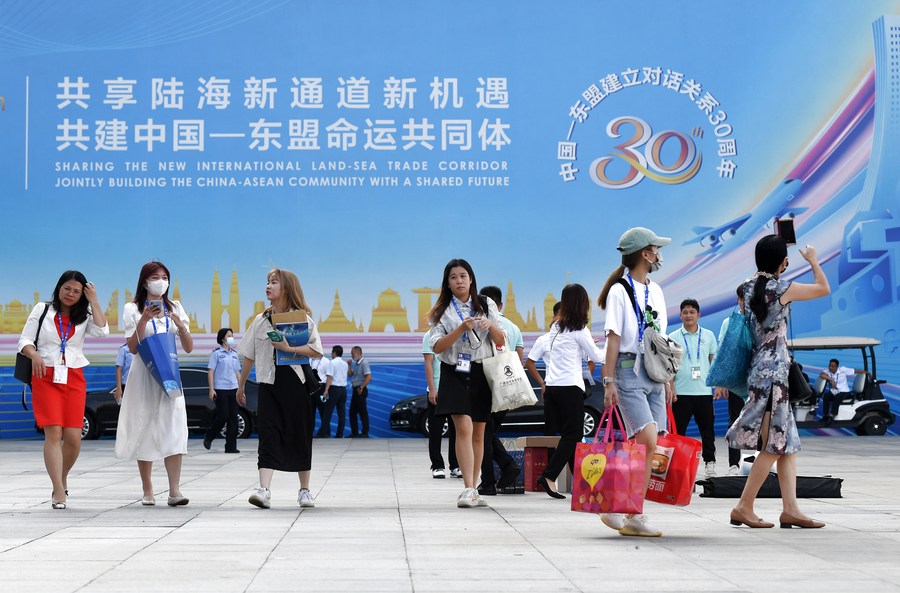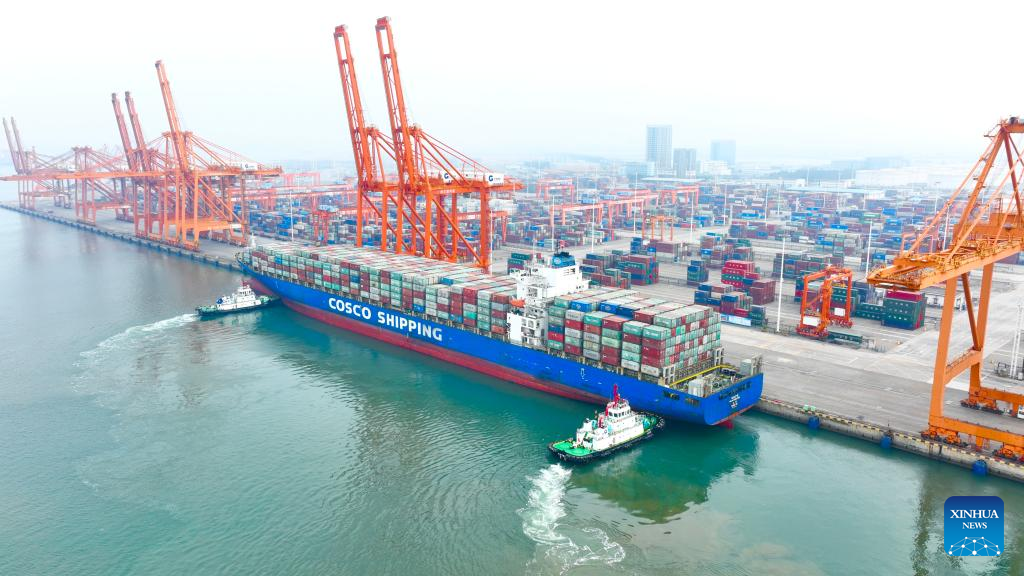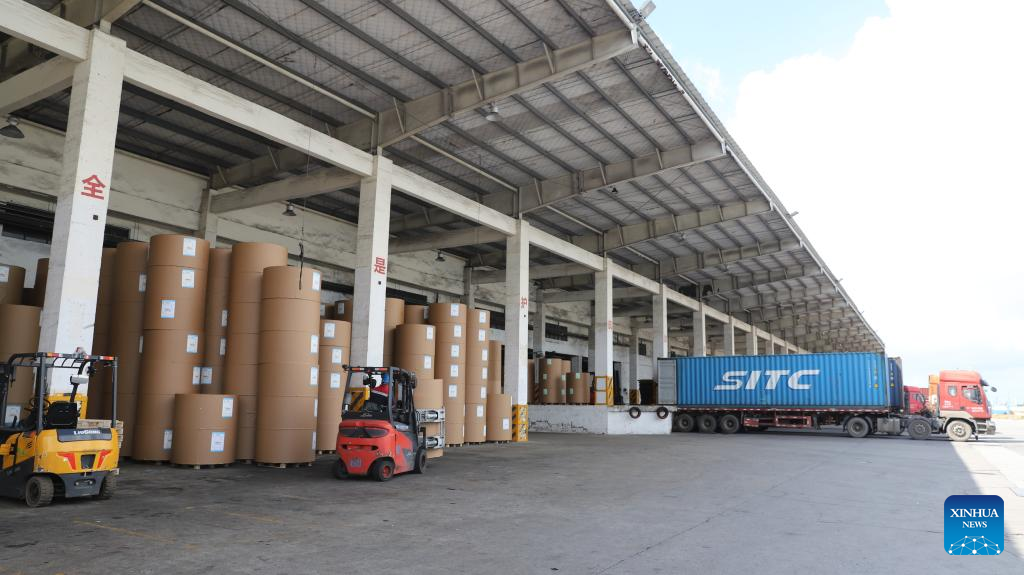
People walk out of the venue of the 18th China-ASEAN Expo in Nanning, capital of south China's Guangxi Zhuang Autonomous Region, Sept. 11, 2021. (Xinhua/Lu Boan)
NANNING, July 30 (Xinhua) -- At a leading paper factory in south China's Guangxi Zhuang Autonomous Region, a production line was running at full steam as orders from ASEAN countries surge this year.
"Nearly 90 containers filled with white cardboard produced by the factory are shipped through Qinzhou port every day to ASEAN markets and the number keeps increasing," said Zhou Ju, logistics department director of Guangxi Jingui Pulp & Paper Co., Ltd., owned by Indonesia's Asia Pulp & Paper Sinar Mas.
Since the Regional Comprehensive Economic Partnership (RCEP) entered into force in January, trade costs have been further reduced among member countries and related companies have seen tangible benefits.
Customs data shows that, in the first half of this year, China's trade with ASEAN countries reached 2.95 trillion yuan (about 437.8 billion U.S. dollars), a year-on-year increase of 10.6 percent.
Zhou said that the raw materials like wood chips, wood pulp, and starch imported from ASEAN countries now enjoy preferential tariffs thanks to the RCEP agreements, and that has greatly saved the cost of the company.
The Indonesian company also established a branch in January in Nanning, capital of Guangxi, to manage the forestry affairs of the group in China, Laos, and Cambodia, and seek to expand industrial chains as the company eyes the giant economic cooperation potential among China and ASEAN countries.
Companies believe that the implementation of RCEP enables ASEAN and Chinese enterprises to conduct business in a more transparent and clear environment, simplify customs clearance procedures, and facilitate trade and economic exchanges.
"The implementation of RCEP has brought real benefits to our company and our partner companies in Malaysia," said Li Huihuan, deputy general manager of Guangxi Free Trade Zone Sing Nest International Trading Co., Ltd., a Singaporean-funded health food production and processing enterprise in Guangxi. The company has been importing raw materials like edible bird's nests from Malaysia.
Li added that thanks to the simplified customs clearance brought by RCEP, the production and operation efficiency of the enterprise have greatly improved. "The time span from ordering raw materials in Malaysia to receiving goods has been shortened from 15 days to five days, which has greatly reduced our warehousing costs," Li said.
For Chinese companies in Guangxi, RCEP also boosted their confidence to deepen cooperation with ASEAN countries. Liugong Machinery Co., Ltd. transported a large number of loaders to Thailand in January and signed a joint venture agreement with Thai distributor Yontrakarn in February.
Zeng Guang'an, chairman and CEO of the company, said that the two sides have been cooperating for 11 years, and they wish to serve Thai clients better with the joint venture.
Connected with ASEAN countries by land and sea, Guangxi becomes an important window for exchanges and cooperation between China and RCEP members. A total of 12 air cargo routes have been opened between Guangxi and ASEAN countries, covering almost all major ASEAN countries. ■

Photo taken on March 2, 2022 shows the container terminal of Qinzhou Port in south China's Guangxi Zhuang Autonomous Region. (Xinhua)

Workers load and ship white cardboard products in the delivery area of a paper factory in south China's Guangxi Zhuang Autonomous Region, July 22, 2022. (Xinhua)



